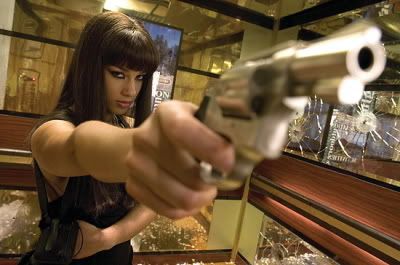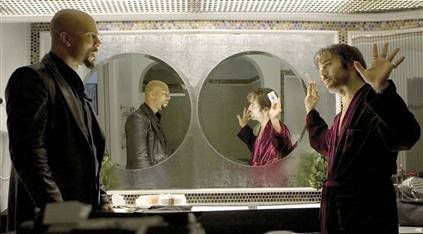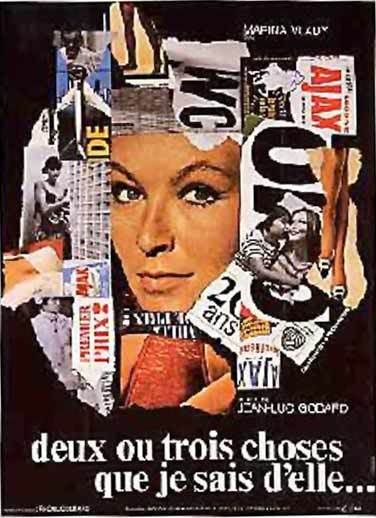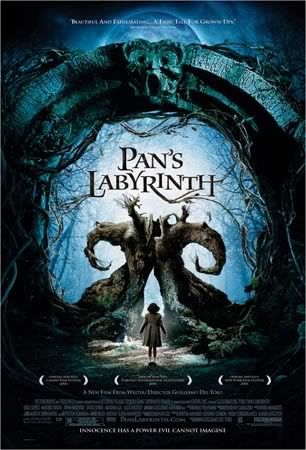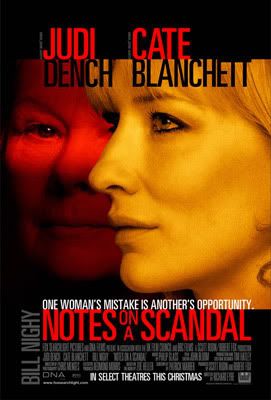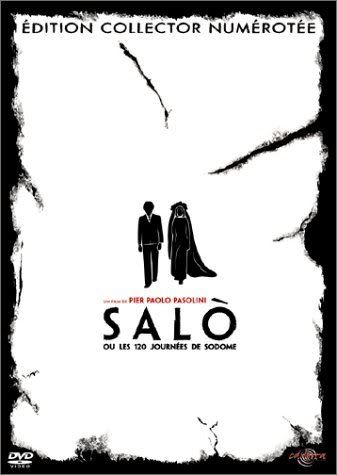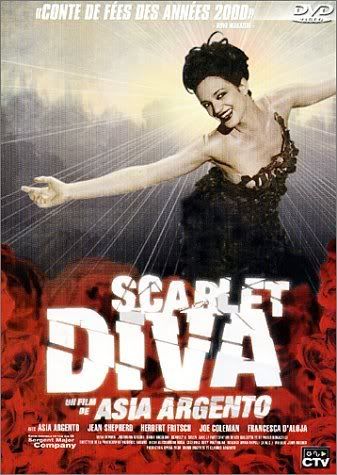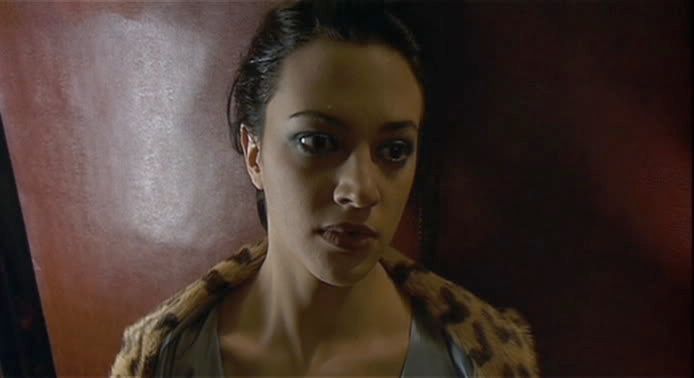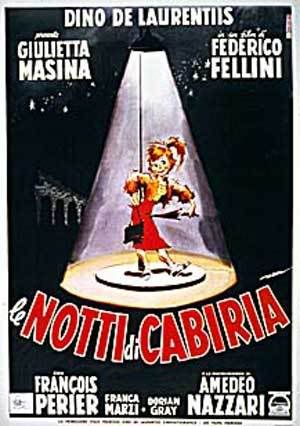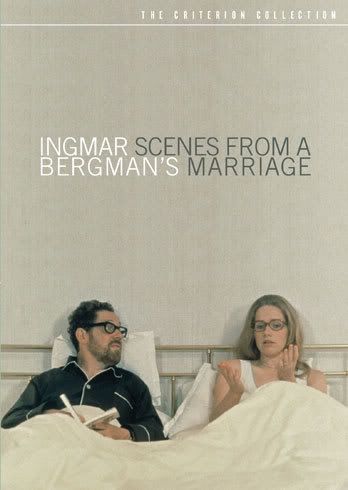We're a few days into 2007, so it's high time I posted my top ten of 2006 list. I sort of agonized over this (hindsight is 20/20, really), and I still could do more work on it, but enjoy nonetheless!

10. The Science of Sleep (dir. Michel Gondry)
Although it moves dangerously toward silly melodrama at times, every single scene, every shot has Gondry's trademark childlike sense of wonder in it. Stephane's dreams are intensely beautiful and full of wonder, yet are still particularly adult and existential. Gael Garcia Bernal had a damn good year, starting on this list with a solid performance as Stephane. Bernal makes Stephane, who's a childish jerk, into someone we really care about.
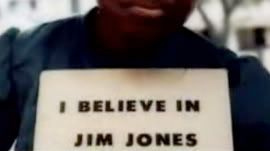
9. Jonestown: The Life and Death of the People's Temple (dir. Stanley Nelson)
The documentary of the year, Jonestown takes an event that all of us have at least incidental knowledge of, and makes it into something real and effective. The Jonestown massacre is usually portrayed as a mass suicide, but after seeing Nelson's documentary, I am convinced that it was murder by Jim Jones, a man who started out with a noble mission, but ended up paranoid and murderous. The testimonies from the two sole survivors of the Jonestown incident made me shake with their emotion. Definitely speaks to both the cruel and kind sides of human nature, at their most base.

8. Candy (dir. Neil Armfield)
Candy is on this list almost solely on the basis of its overall strong performances. Heath Ledger is one of the best actors of his generation, and gives a tortured and effortly realist performance as Dan, heroin addict who can't (and doesn't want to) kick his habit. Abbie Cornish broke out this year in her role as Candy, Dan's girlfriend who seemingly has more to live for, yet ruins her life with heroin as well. Geoffrey Rush is simply amazing in the supporting role of Dan and Candy's mentor, a functional addict who deals to them, yet tries to warn them about what they're getting into. Candy is both a heart-breaking and painfully realistic view of drug addiction, from the brilliant beginning to the ultimate tragedies.
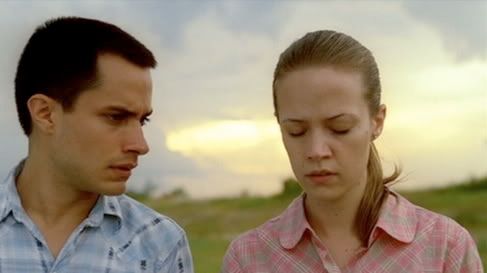
7. The King (dir. James Marsh)
The other film on this list that rests almost completely on the strengths of its amazing performances. Bernal had his best performance of the year as Elvis, a young Marine on leave who just wants to reconnect with the man who may or may not be his father. Elvis is at first sympathetic, as he just wants a family, but becomes more and more obsessive and threatening, but so subtly that we almost don't notice. Bernal doesn't make Elvis a typical villian, and it took a great actor (the best of his generation, I'm sure) to make that apparent. William Hurt and Paul Dano are also very effective in their self-righteous characters, one who learns the errors of his ways, as the other doesn't. Pell James and Laura Harring are given less to do, but are still fascinating in their roles. This is an epic, almost Biblical story of family, love, and revenge, one that deserves to be seen much more than it was.
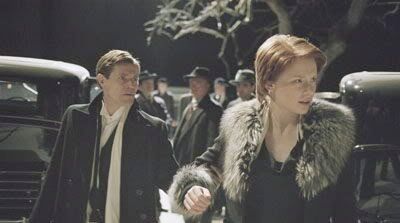
6. Manderlay (dir. Lars von Trier)
Much better than the overblown Dogville, mostly due to the surprisingly strong performance of Brice Dallas Howard. Howard is far more the character of Grace than Nicole Kidman ever was, idealistic and naive, yet with a core of bitterness and anger right underneath. Grace comes to Manderlay plantation, kicks the white owners out, that had been keeping their black workers as slaves, and institutes a democracy on the plantation that the workers never really asked for. Is it about white liberal guilt? Maybe it's about our situation in Iraq, or colonialism in general. Who knows! I think that every liberal, especially white ones, needs to see this movie to examine their own possible self-righteous qualities. I am convinced von Trier is a genius, one of the most controversial and debatable ones out there.

5. Battle in Heaven (dir. Carlos Reygadas)
I'm not quite sure that this officially came out in 2006, but I definitely saw it this year and fell in love with Reygadas because of it. The sexually explicit (Brown Bunny has nothing on it) story of a man who kidnaps a child with his wife, but the child dies (none of this is ever seen) and he becomes consumed with guilt over the child, and also is afraid of being caught by the police. He is also obsessed with the girl he drives around (he's a chauffeur), a rich girl who is a prostitute for fun. All these plot lines are almost secondary to the atmopshere, the scenery, the absolutely stunning photography. Reygadas (as in Japon) used all non-actors, but they give perfomances so stunning (especially Anapola Mushkadiz as the rich girl) that one would think they've been acting forever. Some (many) have called this film boring, but I think that it's devastating and beautiful, and about what it means to be human and look for redemption, both from God and from yourself.
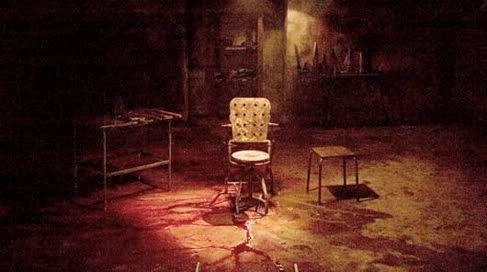
4. Hostel (dir. Eli Roth)
It's hard to believe that Hostel was 2006 as well; it dropped on us in January, and the Splat Pack was born. Roth has an incredible love of and talent for horror films, and he almost single-handedly brought back gore to the American horror film. And it's just what was needed after a few years of PG-13 madness and Asian remakes. Hostel is full of blood, gore, boobs, and severed limbs, and I wouldn't have it any other way. It's sadistic, yet fun to watch; I had to cover my eyes once in the theater, but have watched it on DVD several times since. The initial hype was all too much, and I was almost disappointed in the film at first, but I have come to appreciate it as a great horror film, one that has inspired a new trend in mainstream horror. I can't wait for the sequel in April! Other great horror films of the year that almost made the list were the Hills Have Eyes remake (Aja makes it better than the original) and The Descent, a surprisingly underrated terrifying story.

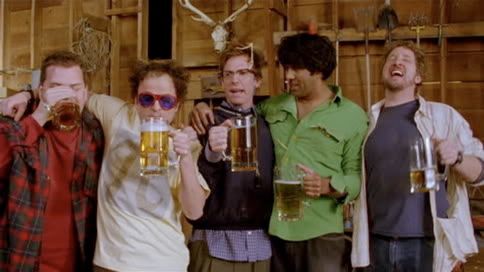

3. Talladega Nights/Beerfest/Let's Go to Prison
It was a great year for comedy, as evidenced by these three awesome, underrated films. As serious as I try to be about film, there's very little I appreciate more than being able to have a great time in the theater, and there are no films that did this more for me this year than these three films. I saw all multiple times in the theater, and have the first two on DVD already. It was also the one time I really felt that after reading reviews, I had seen a completely different movie than the reviewer. Forget the bad reviews, these are more than movies about NASCAR, beer, and prison. If you're looking for laughs, silly ones and more subversive ones, go with any of these. I promise you'll have a good time.
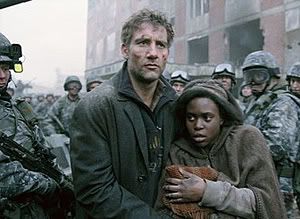
2. Children of Men (dir. Alfonso Cuaron)
I saw this two days before the end of the year, and it blew my mind. I will probably post on it in more depth in the near future, but Cuaron is a ridiculously talented directors. The war scenes are unlike things I have ever seen onscreen, and everything is filmed in a way that it is both acceptable to the mind and yet incredibly unbelievable. The performances are all very strong, especially Clive Owen and newcome Claire-Hope Ashitey as the duo that has to, well, save the world. The movie is depressing and anarchic, yet uplifing at the same time. The thing we all, as humans, have in common is a tie to the future, the hope that the world will continue after we're gone, and this movie illuminates this desire. Even the ambiguous end can mean what you want it to mean, can be either pessimistic or optimistic, as you care to see it. See this movie.
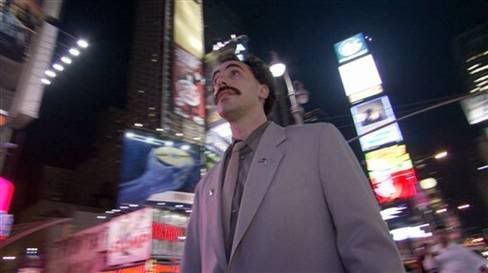
1. Borat (dir. Larry Charles)
As if this was a surprise to anyone. I've said all I really wanted to say about the film in my review linked above, but it is an angry, aggressive, Jewish kick in the ass to this funny country. But above all, it's hilarious. It's more than two naked men running around, I promise you. Forget the hype and see it if you haven't already.
Some runners-up:
The Fountain, Babel, Breakfast on Pluto, Clerks 2, Lunacy, L'Enfant
Disappointments of the year:
Wristcutters: A Love Story (my least favorite of the year), The Woods, Lady Vengeance
Plus, there were a lot of movies I didn't see that might have made the list: The Departed, Volver, Tideland, Perfume.Labels: 2006 |
